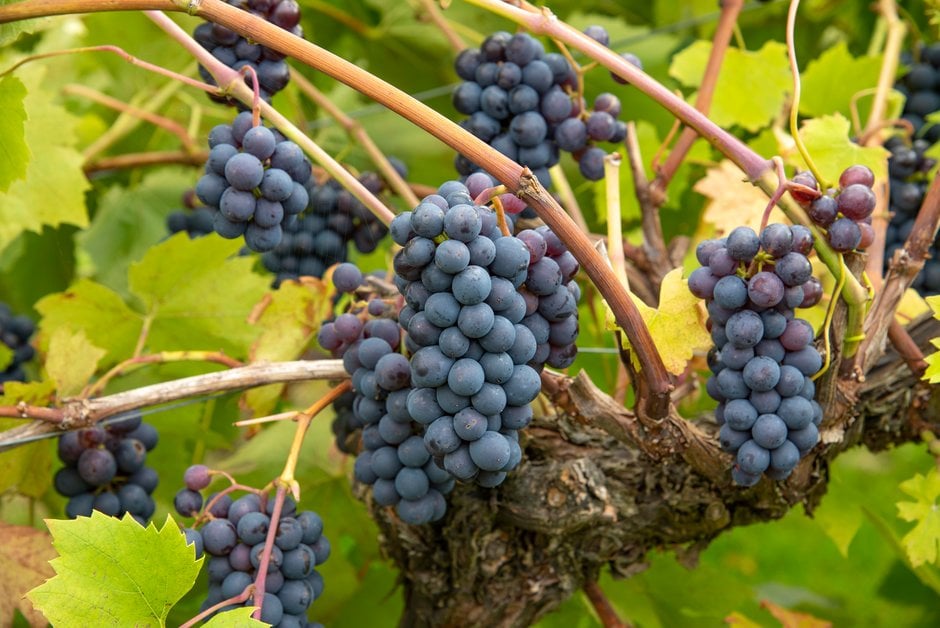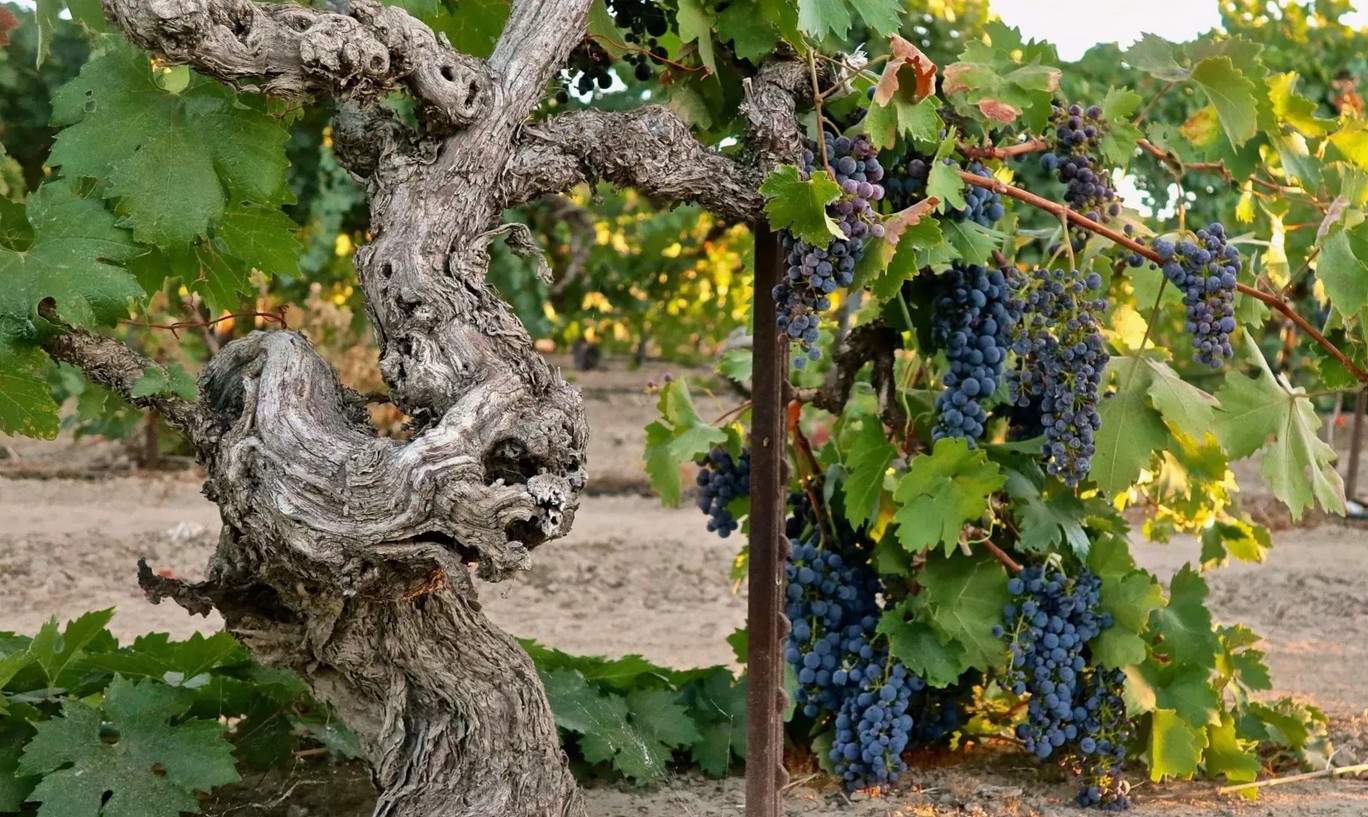Vine (Vitus vinifera)
Map Position: 20The vine is probably the oldest cultivated plant in human history. It can be traced back to the 10th century BC in western Asia, namely what is now Georgia and Armenia. Alcoholic beverages have been widely consumed throughout the ages, among those most commonly wine, but also beer and wines made from other fruits than grapes. Beer is easier and cheaper to produce beer than wine.
During the process of fermentation of fruits and grains all bacteria are killed. Therefore, alcoholic beverages are free of bacteria that can cause diarrhoea and vomiting, typhoid and dysentery, cholera, and other infections. Until a couple of hundred years ago, these would have left the infected unable to work, therefore unable to earn a living, for quite some time; it could even have killed them. It was not until the discovery of bacteria in the 18th century that we understood the causes of these diseases and their prevention.

Wine and beer were therefore “healthy” drinks, whereas water was frequently highly contaminated and dangerous.
To give a few examples of quantities consumed:
Priests in Mesopotamia had an entitlement of 5 litres beer per day.
The pharaoh could not afford his workers to be off sick if he wanted the pyramids to be completed in his lifetime. Therefore, to keep his workforce healthy they received 4 litres of beer per day.
In the Middle Ages the average consumption of alcoholic beverages was 3 to 4 litres per day.
Today, the NHS advises us that six pints of regular-strength beer or six glasses of regular-strength wine per week are the upper safe drinking limit. People in the past therefore drank more alcohol per day than the NHS recommends as maximum consumption per week.
We have planted two vines; they are still very small but will hopefully grow and we might even get some grapes in a few years’ time.
Biblical
“Beer” is mentioned in some Bible translations, e.g. in the “World English Bible” Proverbs 20.1, and you will not be surprised to read in Luther’s translation of the Bible into German of beer. But beer is not mentioned in the RSV(CE) or the ESV where it is translated with “strong drink”.
Vine, grapes, and vineyards are frequently mentioned in the Holy Bible. People were familiar with these in their daily lives.
We read about them not only in the context of wine but also often as symbols or references in parables. Wine is seen as a blessing from God, feeding the thirsty and bringing joy and gladness. The Bible warns us, however, not to abuse wine because of its intoxicating potential. Drunkenness is sinful because control and judgement can be lost.

“Wine” is mentioned 237 times in the Bible, from Genesis to Revelation,
“Vine” 176 times, from Genesis to Revelation,
“Vineyard” 102 times, from Genesis to 1. Corinthian,
“Grapes” 31 times, from Genesis to Revelation.
“Raisins” 8 times from Samuel to Hosea.
Jesus says, “I am the true vine” (John 15.1), and wine is the spiritual drink for celebrating Holy Communion. This indicates their importance for Christians.
